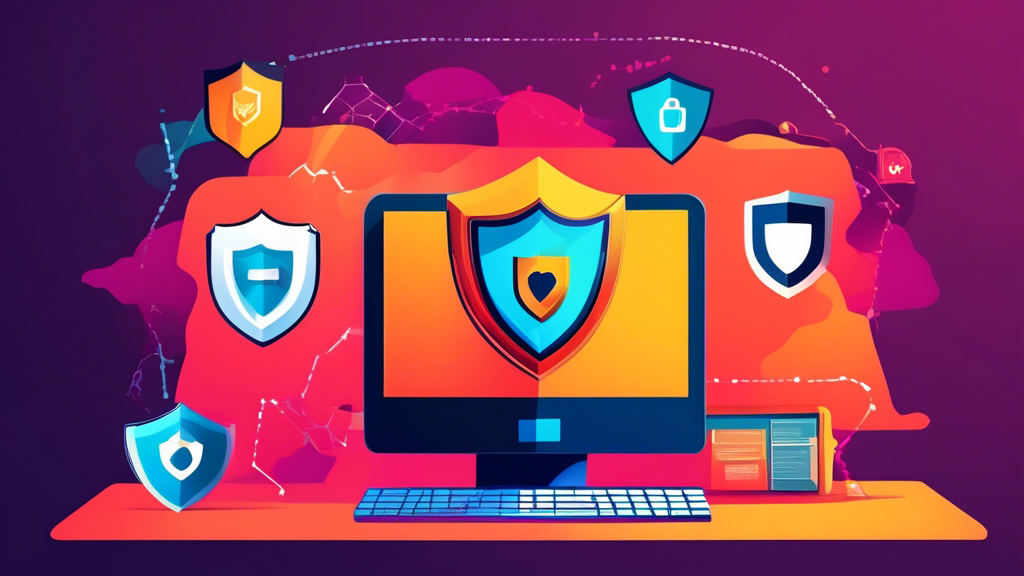Introduction to Enhancing Website Security
In the digital age, where information travels faster than the speed of light, the security of your website is not just an option; it’s a necessity. With increasing threats from hackers and cybercriminals aiming to steal sensitive data, compromising website security can lead to serious consequences for both businesses and consumers. But fear not! By the end of this article, you’ll be equipped with essential tips to fortify your website’s defenses. And who knows, you might even catch a glimpse of our friendly neighborhood cyber spider, weaving stronger webs of security. Just don’t expect it to save the city—this spider’s more about 1s and 0s than skyscrapers and villains.
Understanding the Importance of Website Security
Before we dive into the tips, it’s crucial to understand the why behind website security. Protecting your website from cyber threats not only safeguards your business’s reputation but also ensures the privacy and trust of your users. In an era where data breaches can bankrupt businesses and ruin lives, taking proactive steps towards securing your website is as essential as having a website in the first place.
Securing Your Website: A Step-by-Step Guide
1. Keep Software and Platforms Up-to-Date
First things first, always keep your website’s software, plugins, and third-party services up to date. Developers regularly release updates that patch vulnerabilities. Ignoring these updates is like leaving your digital door wide open for anyone (read: hackers) to walk in. Remember, even the strongest fortress can fall with one unguarded entrance.
2. Use HTTPS
You’ve probably noticed that some URLs begin with http://, while others with https://. That extra s stands for ‘secure’, and it indicates that the connection between your browser and the website is encrypted. Obtaining an SSL certificate (the technology behind that extra s) is a fundamental step in securing your website’s connection, making it significantly harder for cybercriminals to intercept any data.
3. Strong Password Policies
This might seem like a no-brainer, but you’d be surprised how many people still use password as their password. Implement strong password policies for both your back-end access and user accounts. Encourage (or mandate) the creation of complex passwords and consider implementing two-factor authentication (2FA) for an added layer of security. It’s like adding a second lock to your treasure chest—except this chest holds data, not gold.
4. Regularly Backup Your Data
Backups are your safety net, ensuring that even in the worst-case scenario, such as a data breach or accidental deletion, you can restore your website to its former glory without significant loss. Implementing regular, automated backups and storing them securely off-site can be a game-changer in times of crisis.
5. Conduct Security Audits
Regularly conducting security audits on your website can help you identify potential vulnerabilities before they are exploited. This can range from scanning for malware to testing for SQL injection vulnerabilities. Several tools are available to assist with this, but it might also be worthwhile to consult with security experts for a comprehensive review.
6. Limit User Access and Permissions
On a multi-user platform, not everyone needs access to everything. Implement the principle of least privilege by restricting user access and permissions to only what is needed for their role. This way, even if an account is compromised, the potential damage is limited.
Making Security a Continuous Priority
One crucial thing to remember is that website security is not a one-time task but a continuous process. The digital landscape is always evolving, and so are the methods hackers use to exploit vulnerabilities. Keeping abreast of the latest security trends and being prepared to adapt your strategies is key to maintaining a secure website.
And let’s not forget, the journey to ensuring website security is akin to climbing a mountain. It might seem daunting at the beginning, but with the right tools and determination, reaching the summit is entirely possible. Plus, you’ll have the bonus of not having to worry about altitude sickness or freezing temperatures—just the cold, hard reality of cyberspace.
Conclusion: Securing Your Digital Presence
To wrap things up, bolstering your website’s security isn’t just about protecting your business; it’s about fostering a safe digital environment for your users. By implementing these essential tips, you’re not just putting up a Beware of Dog sign; you’re building a digital fortress that shields your data and deters cyber threats.
And remember, if you’re ever in need of expert assistance in web development or seeking to elevate your website’s security game, look no further than StarMetaverseGeorgia.com. Consider it your gateway to a secure, reliable, and top-notch digital presence. Let’s weave those stronger webs of security together—after all, even cyber spiders need a little help from their friends.
So, what are you waiting for? Make today the day you bolster your website’s defenses and step into a more secure digital future.

Comments are closed